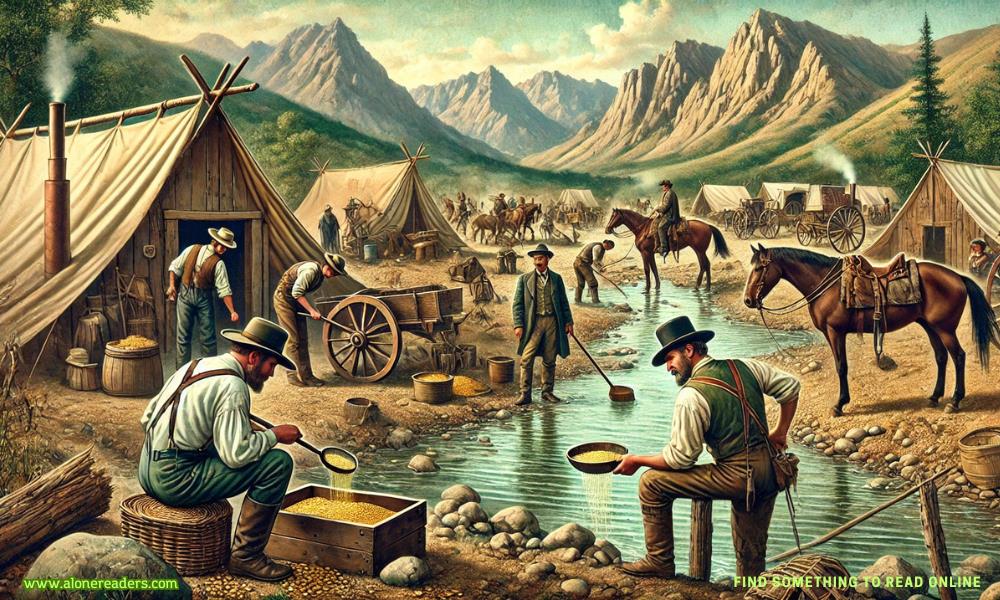Page 19 of Revisions
“But you wish I would.”
“Sure. You wish you could, too.”
I chuckle.
“Ryan would have told you if he thought you needed to change your plans.”
“I know.”
“That isn’t why you called. Do you want to talk about it?” Jameson asks.
“Lawson.”
“You mean Laura.”
“Can I separate the two?” I ask.
“No. Not really. Candace, you can’t keep beating yourself up for what that asshole says and does. I know you want to protectLaura. She knows that. You can’t. All we can do is remind her that we love her. Youknowthis.”
“He fans the flames, Jameson. Lawson is determined to make life miserable for me. I can deal with that. Laura?—”
“Knows who her father is,” Jameson says. “Call Grant.”
“What?”
“Call Grant. It will make you feel better.”
Jameson’s suggestion shouldn’t surprise me. It has taken her time to accept Grant Hill as an extended part of our family. I can’t blame my family for their initial skepticism about Grant and his intentions. My breakup with his mother left scars on all my children. And Grant’s conservative upbringing and political affiliation didn’t inspire immediate trust. I’ve always understood the conflict between Grant’s heart and his mind, as it battles endlessly with reason.
For a long time, my kids held animosity towards my ex, Jessica. The publicity surrounding her infidelity made them perceive her affair in isolation—as though it were the sole reason for our breakup. I never doubted that Jess loved me. Living with me proved more challenging for her than she had anticipated. It wasn’t my kids or the caustic comments my mother made under her breath that widened the distance between us. My kids were older, concentrating on school and friends, while my focus narrowed in on my career. The media and political chatter intensified about my possible run for governorship, cabinet positions, and even a future bid for the White House. My time was in constant demand, which meant I received constant attention. Jessica struggled with jealousy, and the truth is, I didn’t pay close enough attention to her insecurities. If I was idealistic about anything, it was our relationship.
Coming out as a lesbian in my forties to my family was stressful. My public profile only heightened the anxiety. Jess and I didn’t publicly acknowledge our relationship for nearly a yearafter I came out. Jonah was still in junior high school and faced the brunt of the fallout, mostly teasing from his peers. Despite the stress and upheaval of revealing to my family and the world that I was a lesbian, I ultimately felt a sense of relief. I didn’t realize the weight I had been carrying until it was lifted. Jess was wonderful—supportive and patient. I thought we would conquer the world together; for a time, it felt that way. A million things impact a relationship, and if you aren’t paying attention, they can add up to destruction.
We both had high-pressure jobs. I had the kids, and then Grant found Jessica. She told me about the baby she placed for adoption and how she often wondered about him. She never expected Grant to reach out to her, and in some ways, his entrance into her life amplified her insecurities. His adoptive parents were conservative Christians, openly opposed to the idea of same-sex relationships, abortion, and climate change. It was tough for Grant and painful for Jess. He wanted Jess in his life—wantedusin his life—but he feared his parents’ rejection. She carried so much guilt about her decision to place him for adoption, and even more guilt because her sexuality and the notoriety of our relationship created conflict for him. Those insecurities manifested in unexpected ways, creeping between us. She was close to my kids—to Shell most of all. Grant didn’t want anyone but us to know he’d reached out. Jess felt like keeping it a secret from my kids was a betrayal. She worried about how they’d react if and when they learned about Grant. She also worried about how that might affect me. There were so many questions and conflicts raging within her. I wasn’t paying attention—not the way I should have. I don’t believe Jess was seeking comfort from another woman. I think, subconsciously, she hoped to sabotage our relationship. It hurt us both. It hurt the kids. And it also hurt Grant.
Grant reached out to me about a year after Jess and I ended our relationship. He had been working at Family Values International for a few years and quickly climbed up the ranks. Lawson Klein had just taken over as the media director. Klein’s fixation on me raised red flags for Grant, prompting him to send me information about FVI’s political research and strategies. I tried to persuade him to leave the organization. His father had close connections with Lawson and Glenn Stanley, one of the founders. Grant wanted to please his parents while remaining true to his beliefs. I’ve often wondered if accepting his help was the right thing to do. He is as persistent as his mother.
“Candace?”
“Sorry.”
“I lost you for a minute,” Jameson says.
I sigh.
“You know Grant will help any way he can.”
“I know. I hate it, Jameson.”
“What do you hate?”
“Keeping him at arms’ length.”
“Then don’t.”
“You know how much resistance there is in my administration to Grant’s involvement—publicly.”
“Since when do you care about resistance?” Jameson asks me.
- The Sheikh and the Single Mom by Holly Rayner
- Extra Tight by A.R. Taboo
- Dominance by Lisa Cullen
- Buried by T.O. Smith
- Savage Claim by Bella Ash
- Savage Proposal by Bella Ash
- Inappropriately Matched by Chloe Kent
- Wilde Secrets by Melanie Hepburn
- The Devil's Torment by Tracie Delaney
- Ms. Mosley by Talena Tillman
- Stricken by N.N. Britt
- Unspoken by N.N. Britt
- Isaac by N.N. Britt
- Past Lovers by Kelex
- Bitten by Kelex
- Best Friends by Kelex







